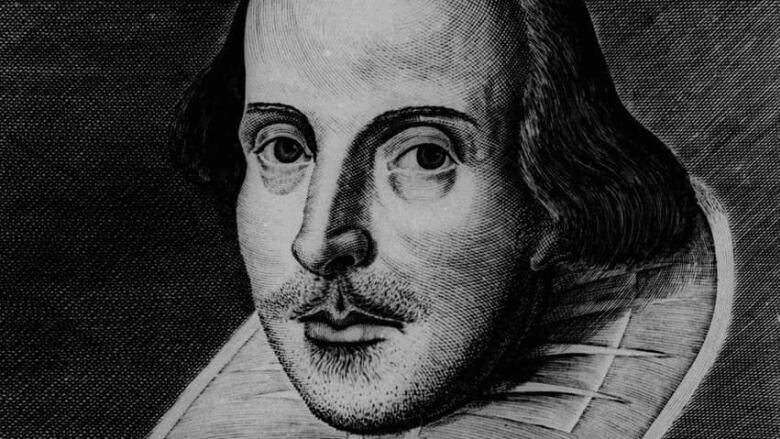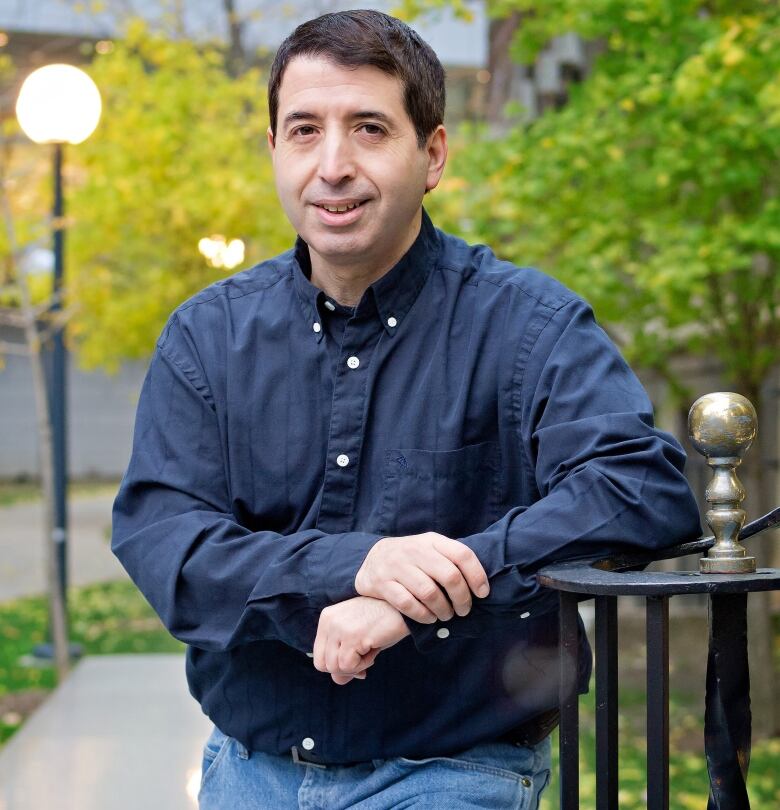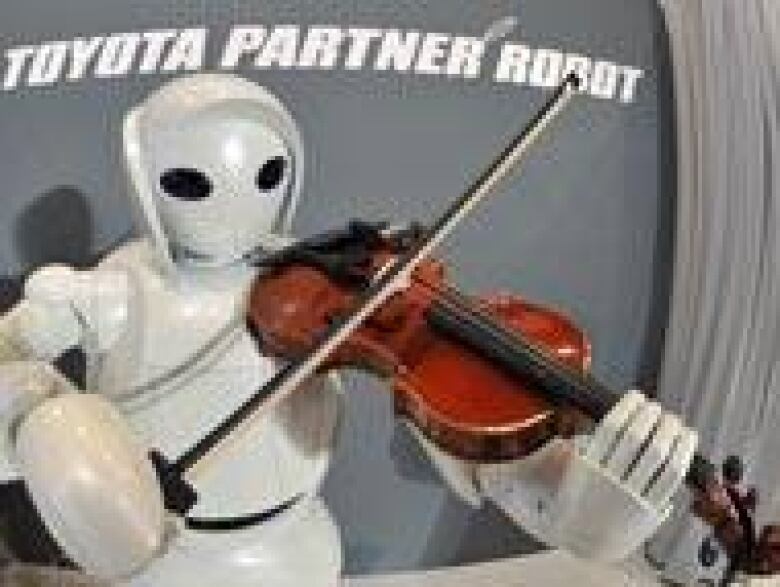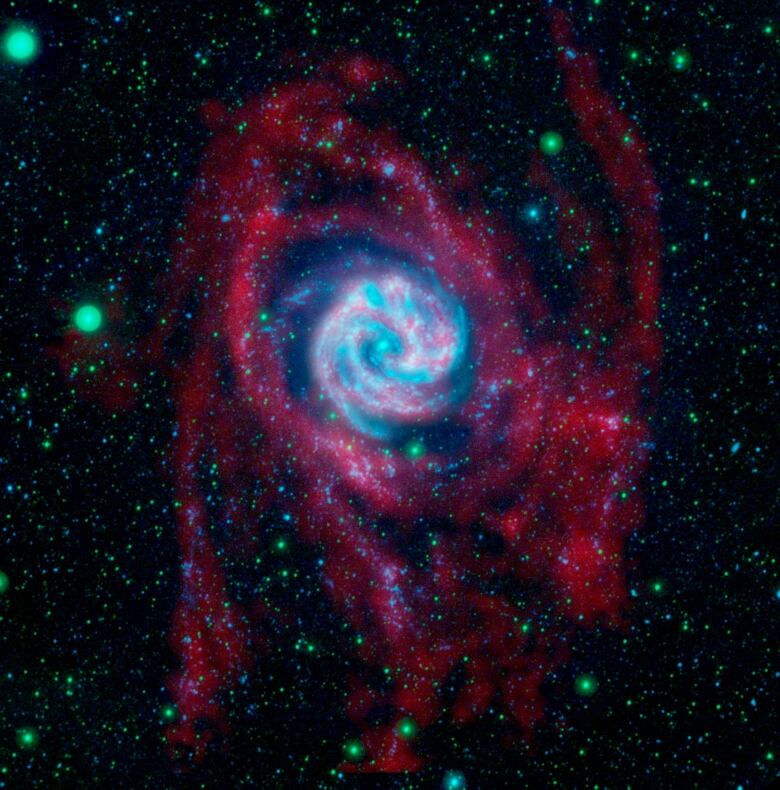Shakespeare at 450: How science may have influenced his work
Bard of Avon lived during a remarkable period of scientific discovery

[Dan Falk is a Canadian journalist, author andbroadcaster.His book, The Science of Shakespeare, was published in Aprilby Goose Lane in Canada and by St. Martins Press in the U.S.]
We dont usually talk about Shakespeareand sciencein the same breath:For one thing, science, as we think of it today, didnt really exist in Elizabethan England.And yet, with hindsight, Shakespeare lived during a remarkable period of discovery a period that we now look back on as the first phase of the Scientific Revolution.

Did any of these new ways of thinking influence the playwright? A look at his life and famous plays suggests a number of them did.
Here are five ideas that emerged during Shakespeare's time and may have made an impact on his writing.
Atoms
The idea of atoms was actually an ancient one: The early Greeks had speculated that matter may have been composed of tiny, indivisible chunks, too small to be seen with the naked eye.
HannahArendt debate
On the Wed. April 23 edition of CBC radio's Ideas starting at 9 p.m. EDT, a debate over Hannah Arendt'stheories.
Was Adolph Eichmann not ultimately responsible for the destruction of six million Jews?Were Jews themselves partially to blame for their own fate? Fifty years ago, political philosopher Hannah Arendt published a famous book that seemed to imply these things, and created an instant uproar that hasn'tended.Roger Berkowitz, Adam Gopnik, Rivka Galchen and Adam Kirsch debate the reality behind Arendt and her ideas.
Confirmation of this bold idea would come only in the 19th century, long after Shakespeares time; and yet, the ancient Greek idea was experiencing a bit of a revival in Elizabethan England.
This was largely thanks to the work of Lucretius, a Roman philosopher whose epic poem, On The Nature of Things, touted the virtues of the atomic theory.As Stephen Greenblatt of Harvard has noted, the book went through some 30 Latin editions between 1473 and 1600 (the copy that belonged to playwright and critic Ben Jonson can be seen to this day in Harvards Houghton Library).
Did Shakespeare know about atoms? Yes at least, he knew enough about them to refer to them poetically on several occasions.
In Romeo and Juliet, for example, Mercutio suggests that his friend has been visited by Queen Mab, a fairy-like creature that enters her victims brains via their noses, interfering with their dreams. How small is Queen Mab? She comes "in shape no bigger than an agate stone,"Mercutio says, sitting in a coach "Drawn with a team of little atomi / Over mens noses as they lie asleep."
Automata

Rene Descartes born 32 years after Shakespeare would describe the human body as "nothing but a statue or machine made of earth."He compared the movements of humans and animals with the workings of the robot-like "automata" that had already become a popular distraction in royal gardens in Shakespeares time.
As Scott Maisano of the University of Massachusetts in Boston has pointed out, the climactic scene in The Winters Tale in which a statue of the dead queenHermione springs to life may have been inspired by the popularity of these automata, and, more generally, of the new conception of the world as a mechanical device, with its various parts pushing and pulling on one another.
Medical diagnoses and treatments
Shakespeares characters often talk about illness, disease, and various treatments and cures. Much of the writing accurately reflects the medical learning of his time (such as it was).
Where did Shakespeare come by his medical knowledge?
In the latter part of his career, there would have been a doctor in the family.John Hall, a prominent Stratford physician, married the playwrights oldest daughter, Susanna, in 1607.
This may explain why doctors are, in general, shown in a positive light, especially in Shakespeares later works.
Luckily for historians, some of Dr. Halls medical notebooks have survived; we even have a record of a treatment he once administered to his wife Mrs. Hall of Stratford. The unfortunate Susanna had been "miserably tormented with the Colic,"but was cured, Hall writes, by means of an enema and various libations.
Copernicanism

Digges vision was even more radical than that of Copernicus:In one of his books he included a diagram of the cosmos in which the stars are seen to extend outward without limit a remarkable vision of a possibly infinite cosmos.
What did Shakespeare make of Digges idea?
We find a clue, perhaps, in a remarkable passage in Hamlet, in which the prince envisions himself as a king of infinite space. Could he be alluding to the new, infinite universe described for the first time by his countryman Thomas Digges?
It is also possible that one of the later plays, Cymbeline, contains allusions to Galileos telescopic discoveries, which lent further support to the Copernican model of the heavens.
The debunking of astrology
Astrology and astronomy were very much intertwined in Shakespeares time, and the idea that the stars control ones fate was very popular, perhaps almost ubiquitous.And yet, several of Shakespeares characters speak out against the folly of such views.
In Julius Caesar, for example, Cassius declares, "The fault, dear Brutus, is not in our stars, / But in ourselves, that we are underlings."
In King Lear, Shakespeare explicitly contrasts the superstitious views of Gloucester who believes that the recent eclipses of the sun and moon "portend no good to us" with those of his illegitimate son, Edmond, who mocks such beliefs as "the excellent foppery of the world."
Edmond goes on to ridicule the idea that the circumstances of his birth are responsible for shaping his character: "My father compounded with my mother under the Dragons tail, and my nativity was under Ursa major, so that it follows, I am rough and lecherous. Tut! I should have been that I am had the maidenliest star in the firmament twinkled on my bastardizing."
[Listen to Dan Falks documentary, "The Science of Shakespeare,"produced for CBC Radio's Ideas, in the link at the top-left of this page.]












_(720p).jpg)


 OFFICIAL HD MUSIC VIDEO.jpg)
.jpg)



























































































